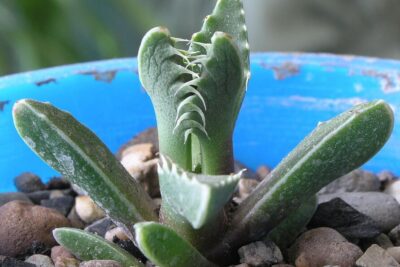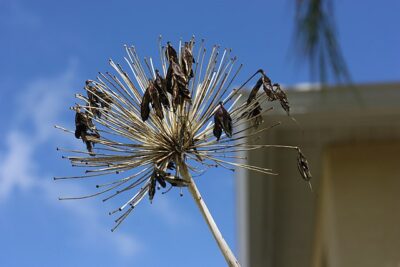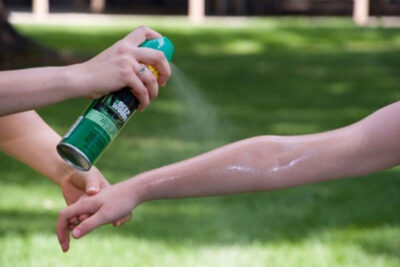
Ant-Free Succulents: Effective Ways to Eliminate Ants

Ants can be a common nuisance in many households and gardens. Not only can they invade indoor spaces in search of food, but they can also cause damage to plants and even spread diseases. For succulent enthusiasts, dealing with ants can be particularly frustrating, as these small insects can disrupt the health and well-being of these low-maintenance plants. Therefore, finding effective ways to eliminate and prevent ants from infesting succulents is crucial for their survival.
We will explore various methods to get rid of ants in succulent plants. We will discuss natural remedies, such as using vinegar and essential oils, as well as chemical options like ant baits and sprays. Additionally, we will provide tips on how to prevent ants from returning to your succulents and maintaining a healthy environment for these beautiful plants. Whether you are a beginner or an experienced succulent grower, this article will equip you with the knowledge and tools to keep ants away from your beloved succulents.
- Remove any food or water sources that may be attracting ants to your succulents
- Clean the area around your succulents regularly to prevent ants from establishing a colony
- Use a natural ant repellent, such as cinnamon or peppermint oil, around your succulents
- Place ant bait traps near your succulents to attract and eliminate ants
- Sprinkle diatomaceous earth around your succulents as a natural ant deterrent
- Keep your succulents elevated on stands or trays filled with water to create a barrier against ants
- Trim any branches or foliage that may be touching the ground and providing ants with a pathway to your succulents
- Consider using a non-toxic ant spray specifically designed for indoor plants to eliminate ants from your succulents
- Frequently Asked Questions
Remove any food or water sources that may be attracting ants to your succulents
Ants are attracted to food and water sources, so it is important to remove any potential attractants around your succulents. Make sure to keep your succulent pots clean and free from any spills or leftover food. Additionally, avoid overwatering your plants as excess moisture can create a favorable environment for ants.
Clean the area around your succulents regularly to prevent ants from establishing a colony
Ants can be a common nuisance when it comes to succulents. Not only do they have a tendency to disrupt the aesthetic appeal of your plants, but they can also cause damage by burrowing into the soil and disturbing the root system. To keep your succulents ant-free, it is essential to maintain a clean environment around them.
Regularly cleaning the area around your succulents can help prevent ants from establishing a colony. Remove any fallen leaves, debris, or dead insects that may have accumulated near your plants. Ants are attracted to food sources, and eliminating these potential food sources will discourage their presence.
 Signs of a Dying Succulent: Understanding Leaf Loss
Signs of a Dying Succulent: Understanding Leaf LossAdditionally, keep the area around your succulents free from any spilled food or sugary substances. Ants are particularly drawn to sweet substances, so it is crucial to avoid any spills or leaks that may attract them.
Use natural ant deterrents
There are several natural ant deterrents that you can utilize to keep ants away from your succulents. One effective method is to create a barrier using substances that ants dislike, such as cinnamon, coffee grounds, or citrus peels. Sprinkle these deterrents around the base of your succulents or create a perimeter around the pots to discourage ants from approaching.
Another natural ant deterrent is diatomaceous earth. This powdery substance is composed of fossilized remains of aquatic organisms and is harmless to humans and pets. However, it can be abrasive to ants' exoskeletons, causing them to dehydrate and die. Sprinkle diatomaceous earth around the areas where ants are frequently seen or near ant entry points to deter them.
Consider using ant traps or baits
If natural deterrents fail to keep ants away from your succulents, you may need to resort to ant traps or baits. These products are designed to attract ants and then eliminate them. Place ant traps near your plants or in areas where ants are frequently seen. Be sure to follow the instructions on the packaging and keep them out of reach of children and pets.
When selecting ant traps or baits, opt for ones that specifically target the type of ants you are dealing with. Different ant species may require different bait formulations for effective control.
Note: It is important to remember that ant control should be done in a way that minimizes harm to the environment and other beneficial insects. Avoid using chemical pesticides unless absolutely necessary, and always opt for environmentally friendly alternatives whenever possible.
- Clean the area around your succulents regularly
- Remove fallen leaves, debris, and potential food sources
- Create barriers using cinnamon, coffee grounds, or citrus peels
- Use diatomaceous earth as a natural ant deterrent
- Consider using ant traps or baits if necessary
Use a natural ant repellent, such as cinnamon or peppermint oil, around your succulents
 Can Succulents Trigger Allergies in Certain Individuals?
Can Succulents Trigger Allergies in Certain Individuals?If you've noticed ants crawling around your succulents, it's important to take action to eliminate them. Ants can cause damage to your plants by feeding on the sweet nectar produced by the flowers or protecting harmful pests like aphids. Luckily, there are natural remedies you can use to repel ants from your succulents.
Cinnamon: Ants dislike the strong scent of cinnamon. Sprinkle cinnamon powder around the base of your succulents or create a cinnamon oil spray by mixing a few drops of cinnamon essential oil with water. Apply this solution around the affected areas to deter ants from coming near your plants.
Peppermint Oil: Another effective natural ant repellent is peppermint oil. Ants find the strong smell of peppermint overpowering, making it an excellent deterrent. Mix a few drops of peppermint oil with water and spray it around your succulents or soak cotton balls in the oil and place them near the affected areas to keep ants at bay.
Remember to reapply these natural ant repellents regularly, especially after rain or watering your succulents, as the scent may dissipate over time.
Place ant bait traps near your succulents to attract and eliminate ants
If you've noticed ants swarming around your succulents, it's important to take action to eliminate them. Ants can be detrimental to the health of your plants, as they often protect and farm pests like aphids, which can cause damage to your succulents. Luckily, there are effective ways to get rid of ants and keep them away from your precious plants.
1. Use ant bait traps
One of the most effective ways to eliminate ants is by using ant bait traps. These traps contain a sweet substance that ants are attracted to. When the ants consume the bait, they bring it back to their colony, effectively eliminating the entire ant population. Place these traps near your succulents to attract the ants and keep them away from your plants. Make sure to follow the instructions on the packaging for best results.
2. Create a natural ant repellent
If you prefer a more natural approach, you can create your own ant repellent using common household ingredients. Mix equal parts of vinegar and water in a spray bottle and add a few drops of dish soap. Shake the mixture well and spray it directly onto the ants and their trails. This solution disrupts the ants' pheromone trails, making it difficult for them to navigate and communicate. Repeat this process regularly to deter ants from returning.
 Protecting Your Garden: Understanding if Rabbits Will Eat Succulents
Protecting Your Garden: Understanding if Rabbits Will Eat Succulents3. Maintain a clean and tidy environment
Ants are attracted to food and water sources, so it's important to keep your succulent area clean and tidy. Wipe away any spills or crumbs that may attract ants. Additionally, make sure to remove any fallen leaves or debris around your succulents, as these can create hiding spots for ants. By maintaining a clean environment, you reduce the chances of ants being attracted to your succulents.
4. Apply diatomaceous earth
Diatomaceous earth is a natural substance that is highly effective in eliminating ants and other pests. It is a fine powder made from fossilized algae that acts as a desiccant, drying out the exoskeletons of insects. Sprinkle a thin layer of diatomaceous earth around the base of your succulents and on any ant trails you may find. Be sure to wear gloves and a mask when handling diatomaceous earth, as it can irritate the skin and lungs. Reapply as needed, especially after rain or watering.
5. Seek professional help if needed
If you've tried various methods and still can't seem to eliminate the ant problem, it may be time to seek professional help. Pest control experts have the knowledge and tools to effectively remove ants and prevent them from returning. They can assess the situation, apply appropriate treatments, and provide advice on how to prevent future infestations. Don't hesitate to reach out to a professional if your ant problem persists.
By following these effective ways to eliminate ants, you can ensure that your succulents remain ant-free and thrive. Remember to be consistent in your efforts and address any potential ant issues as soon as possible. With a little bit of patience and persistence, you'll be able to enjoy your beautiful succulents without the hassle of ants.
Sprinkle diatomaceous earth around your succulents as a natural ant deterrent
If you're tired of dealing with pesky ants invading your succulent garden, then diatomaceous earth might just be the solution you've been looking for. This natural ant deterrent is highly effective and safe to use around your succulents.
Diatomaceous earth is a powder made from the fossilized remains of microscopic aquatic organisms called diatoms. These diatoms have sharp edges that can cut through the exoskeletons of insects, including ants, causing them to dehydrate and die.
To use diatomaceous earth as an ant deterrent, simply sprinkle a thin layer of the powder around the base of your succulents and any areas where ants are commonly seen. The sharp edges of the diatoms will deter ants from crossing the barrier, keeping your succulents ant-free.
 Causes of Death Blooms in Succulent Plants: A Comprehensive Analysis
Causes of Death Blooms in Succulent Plants: A Comprehensive AnalysisNote: It's important to use food-grade diatomaceous earth that is specifically designed for pest control. This type of diatomaceous earth is safe for plants and animals, but deadly for insects.
Keep your succulents elevated on stands or trays filled with water to create a barrier against ants
Ants can be a common nuisance when it comes to caring for succulents. These tiny insects are attracted to the sweet honeydew secreted by aphids and other pests that infest succulent plants. Not only can ants disturb the aesthetic appeal of your plants, but they can also damage them by tunneling through the soil and disrupting their roots.
To keep ants away from your succulents, one effective method is to elevate your plants on stands or trays filled with water. This creates a physical barrier that ants find difficult to cross. Simply place your pots or containers on top of these stands or trays, ensuring that they are fully submerged in water. The water acts as a moat, preventing ants from reaching your precious succulents.
When implementing this method, it's important to regularly check the water levels and refill them as needed. Make sure the water is deep enough to deter ants but not so deep that it touches the bottom of the pots, as this can lead to overwatering and root rot.
Additionally, it's crucial to keep the area around your elevated succulents clean and free from debris. Ants are attracted to food particles and organic matter, so regularly sweep or wipe down the stands or trays to remove any potential food sources.
Remember, prevention is key when it comes to keeping ants away from your succulents. By implementing this simple and effective method of elevating your plants on stands or trays filled with water, you can create a barrier that will help protect your succulents from ant infestations.
 Using Neem Oil for Pest Control on Succulents: A Natural Solution
Using Neem Oil for Pest Control on Succulents: A Natural SolutionTrim any branches or foliage that may be touching the ground and providing ants with a pathway to your succulents
Ants can be a nuisance when it comes to keeping your succulents healthy and thriving. These tiny pests not only disrupt the aesthetics of your plants but can also cause damage by feeding on the plant's sap and creating unsightly trails. To keep your succulents ant-free, it is important to take certain measures to eliminate their presence.
Ants are opportunistic creatures that are always on the lookout for easy access to food sources. By trimming any branches or foliage that touch the ground and lead directly to your succulents, you can effectively cut off their pathway. This will make it more difficult for ants to reach your plants and discourage them from infesting your succulents.
Regularly inspect your succulents and their surroundings to identify any overgrown areas or branches that may need to be pruned. By keeping a clean and tidy environment around your plants, you can reduce the chances of ants finding their way to your succulents.
Consider using a non-toxic ant spray specifically designed for indoor plants to eliminate ants from your succulents
Consider using a non-toxic ant spray specifically designed for indoor plants to eliminate ants from your succulents.
Ants can be a nuisance when it comes to caring for your succulents. Not only do they disturb the soil and roots of your plants, but they can also attract other pests like aphids. However, it is crucial to choose a method that is safe for both your succulents and the environment.
One effective solution is to use a non-toxic ant spray that is specially formulated for indoor plants. These sprays are designed to target ants without harming your succulents or other beneficial insects. Look for products that are labeled as safe for use on edible plants to ensure that they are non-toxic.
When applying the ant spray, make sure to follow the instructions provided by the manufacturer. Typically, you'll need to spray the affected areas of your succulents, including the soil and stems where ants are present. Be thorough but avoid drenching the plant, as excessive moisture can lead to root rot.
 Identifying Scale Infestation on Succulents: A Guide for Plant Lovers
Identifying Scale Infestation on Succulents: A Guide for Plant LoversIt's important to note that ant sprays may not provide a long-term solution to your ant problem. They are more of a temporary fix and should be used in conjunction with other ant prevention methods.
Other methods to keep ants away from your succulents:
- Remove food sources: Ants are attracted to sweet substances, so make sure to clean up any spills or drips of sugary liquids near your succulents. This includes removing fallen fruits or flowers from the surrounding area.
- Seal entry points: Ants can enter your home through small cracks and gaps. Seal any openings near your succulents to prevent ants from accessing them.
- Use natural ant repellents: Certain scents like peppermint, citrus, or cinnamon can deter ants. Consider using essential oils or natural ant repellent sprays around your succulents.
- Create physical barriers: Placing a barrier like diatomaceous earth or food-grade diatomaceous earth (DE) around your succulents can help deter ants. DE is a natural substance that is safe for plants but can be abrasive to ants, preventing them from reaching your succulents.
By incorporating these methods and using a non-toxic ant spray, you can effectively eliminate ants from your succulents and maintain a healthy environment for your plants.
Frequently Asked Questions
1. Why are ants attracted to succulents?
Ants are attracted to succulents because they are often attracted to the sweet honeydew produced by aphids, mealybugs, or scale insects that infest succulent plants.
2. How can I prevent ants from infesting my succulents?
To prevent ant infestation, make sure to regularly inspect your succulents for any signs of aphids, mealybugs, or scale insects and promptly treat any infestations. Additionally, keep the area around your succulents clean and free from food debris.
3. What are some natural remedies to eliminate ants from my succulents?
Some natural remedies to eliminate ants from succulents include using a mixture of water and dish soap to create a spray and applying it directly to the ants or using diatomaceous earth around the base of the plants to create a barrier that ants cannot cross.
4. Are there any chemical insecticides that can be used to eliminate ants from succulents?
Yes, there are chemical insecticides specifically formulated to eliminate ants from succulents. However, it is important to read and follow the instructions carefully to ensure the safety of your plants and yourself.
 The Causes of Succulent Leaf Loss Upon Touch: A Comprehensive Guide
The Causes of Succulent Leaf Loss Upon Touch: A Comprehensive GuideIf you want to read more articles similar to Ant-Free Succulents: Effective Ways to Eliminate Ants, you can visit the Pests and Diseases category.






You Must Read